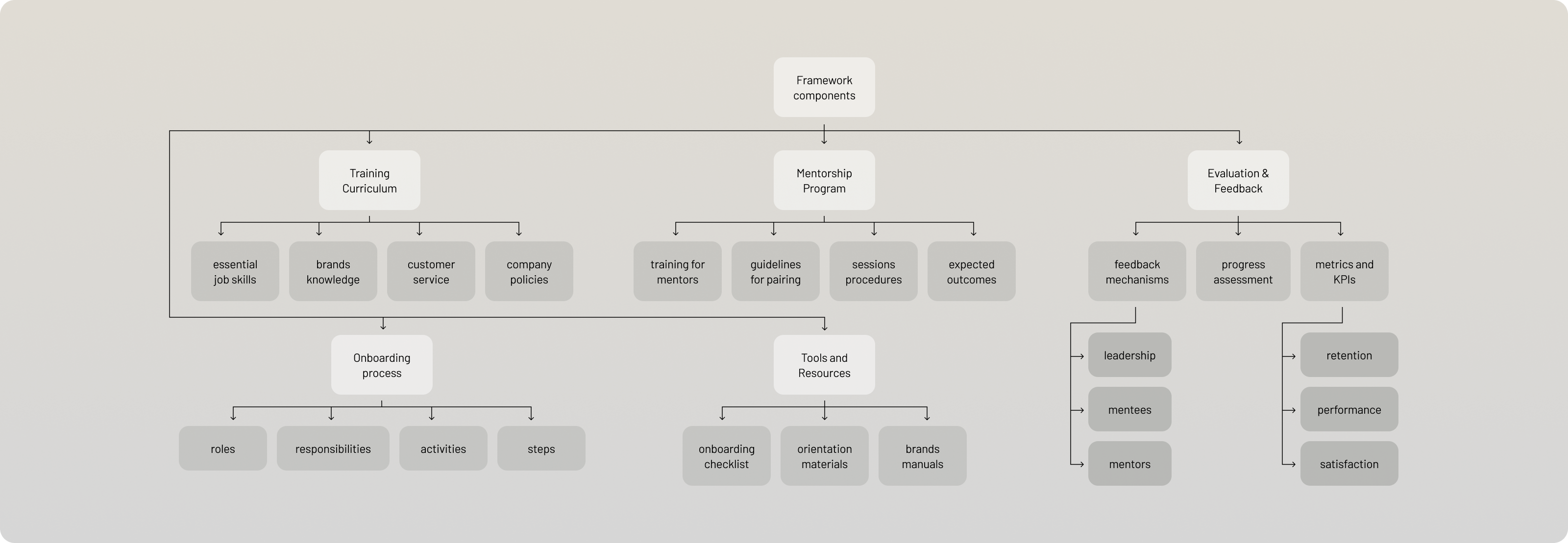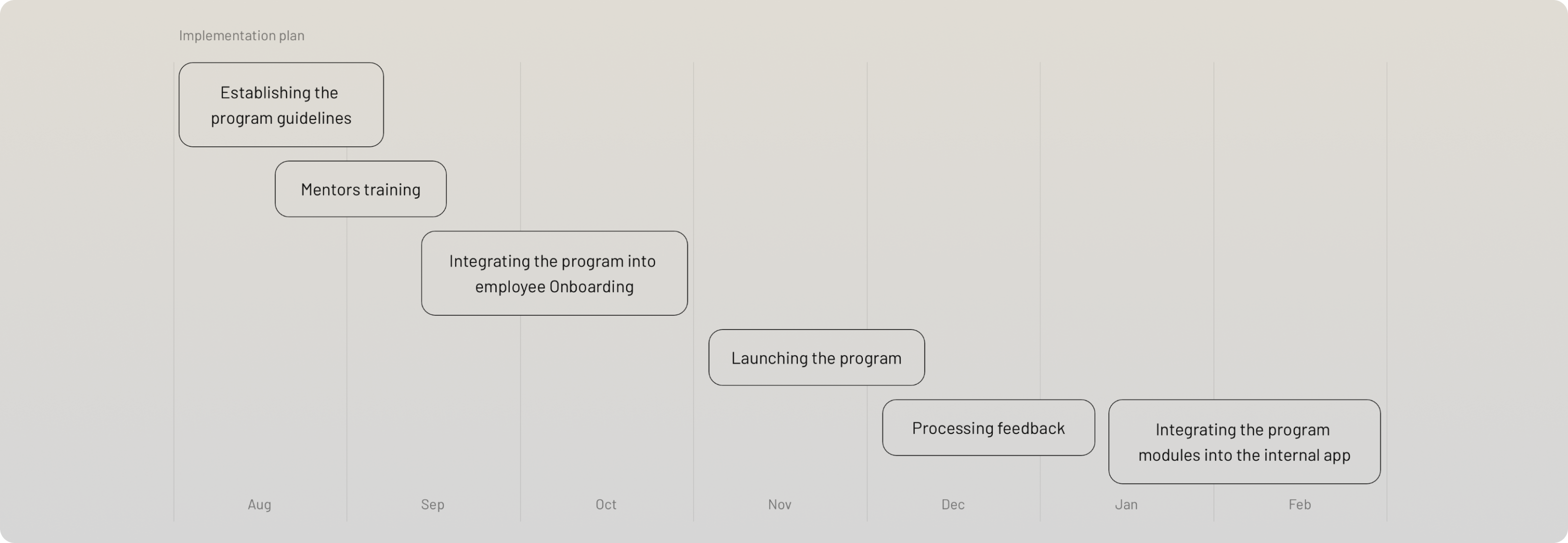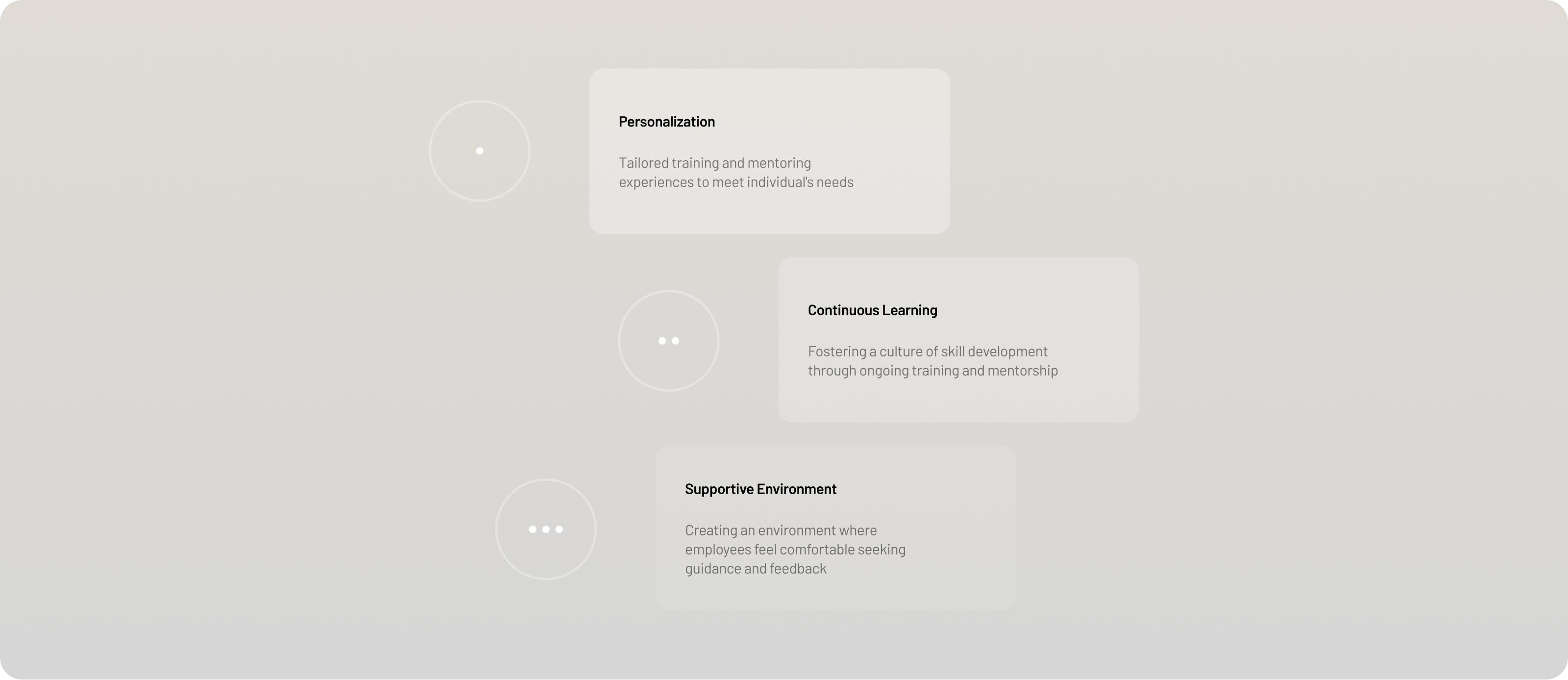Research • Framework design • Experience design • Business strategy

Organizations spend millions of dollars on turnover related expenses, each year. Some reports mention that the average cost of a single employee leaving an organization is 150% of the employee’s annual compensation.
Being aware of the short employee rotation among the newer generations and the cultural paradigms surrounding their work ethics, Estudio de Moda sought to find new ways to reverse the increased rotation trend and motivate younger employees.
My team conducted design research, identified the root causes of the problem the company was facing and suggested a solution to address this problem. With our help, the company recognized the need to empower the new generation of employees to shape tomorrow's workspace and address the challenges it faces regarding employee retention and motivation.
Problem
The company was facing challenges related to short employee rotations and high turnover costs among younger employees. This was attributed to a perceived motivation deficit, ineffective communication of the company's values, and a lack of strategies to encourage employee friendships. The company also recognized intergenerational disconnects and a challenging work environment as contributing factors to the problem.

Research
Our research conducted for the company revealed that 94% of employees expressed their willingness to stay at the company if offered opportunities for learning and growth.
Furthermore, we discovered that in general retention rates were significantly higher for employees who had participated in any sort of mentorship program.

Solution
To address the identified issues, our team proposed the implementation of an internal mentorship program. The structured program aimed to match formal mentors with mentees from within the organization, providing guidance, support, and expertise in areas related to career development, skill enhancement, and personal growth. The framework of the program focused on identifying mentors and mentees, measuring improvements in efficiency and retention, incentivizing program participation, and creating a supportive environment for employees to seek guidance and feedback.
During the concept testing, company’s employees showed a high degree of seeking guidance from a mentor and perceived the mentor program as extremely valuable in driving their professional growth.

Business objective
The primary business objective of this project is to improve retention KPIs and assess long-term progress. We have identified the following Return on Investment (ROI): the mentorship program, in combination with the app's innovative features and concrete reward systems, is a strategic investment aimed at addressing the company's issues with high employee turnover.
By promoting a culture of learning, support, and engagement, the program is anticipated to generate a significant return on investment, thereby contributing to the sustained success and longevity of the company. The key metrics we have proposed to focus on included employee turnover rates, employee satisfaction surveys, skill development metrics (evaluated through completion rates of training modules), growth in the leadership pipeline, assessments of organizational culture, metrics for employee engagement, cost savings in recruitment and training, revenue growth.

Outcomes
The implementation of the mentorship program, coupled with innovative features such as the mentorship app and tangible award systems, is expected to lead to significant improvements in employee retention and motivation. The program sees a measurable improvement in the overall efficiency of onboarding, and employees reported feeling empowered and supported in their professional growth. Through this program, the company can successfully address the challenges of short employee rotation and cultural breakdowns through the mentorship program, creating a healthier work environment with stronger bonds between employees.
Impact
This project exemplifies the effectiveness of an internal mentorship program in empowering younger employees and shaping a healthier, more sustainable workspace.
By implementing a structured mentorship program and focusing on the individual needs of employees, Estudio de Moda can successfully reverse the trend of short employee rotation and create a supportive environment for professional growth and development.
By prioritizing personalized training and fostering a culture of continuous learning, the company aims to address the challenges it faces, contributing to the company's long-term sustainability and success.

Maria's role in the team: design research, framework design, mobile user experience, visuals, prototyping and testing, business strategy, project management, team leadership.
